What Happens If You Leave Conditioner In Your Hair?
Learn about the most proper ways of conditioning your hair to get the best results.
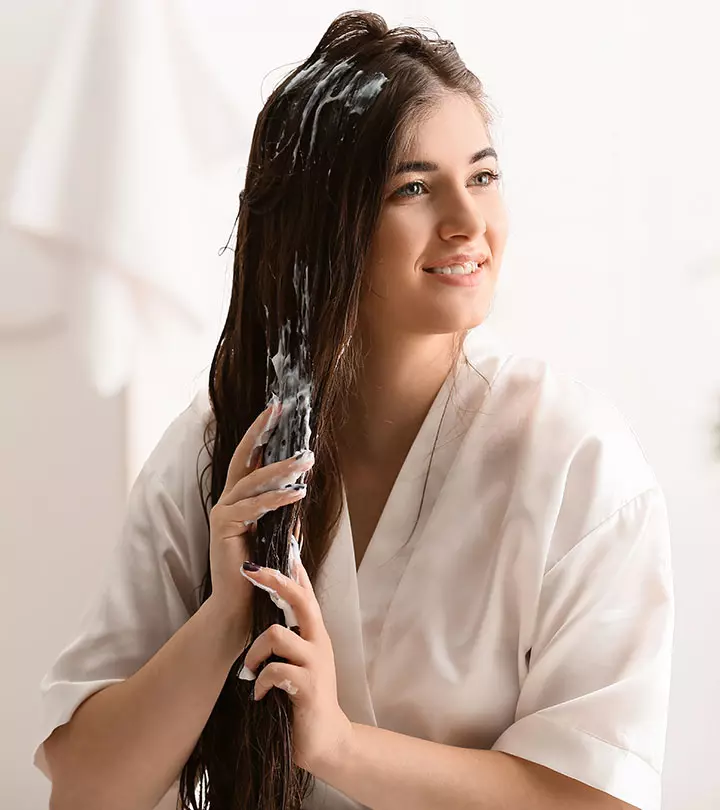
Image: Shutterstock
Conditioning your hair is crucial to maintaining its optimal health. And if you are wondering if you can leave the conditioner in your hair, then the answer is it is absolutely fine to leave the conditioner for long or overnight. Some conditioners, especially leave-in conditioners, are meant to be left in your hair, while you should wash rinse-off conditioners after a few minutes.
This article explains the right way to use both types of conditioners and how long you should leave them in your hair before rinsing off. Scroll down.
In This Article
How Do Conditioners Work?
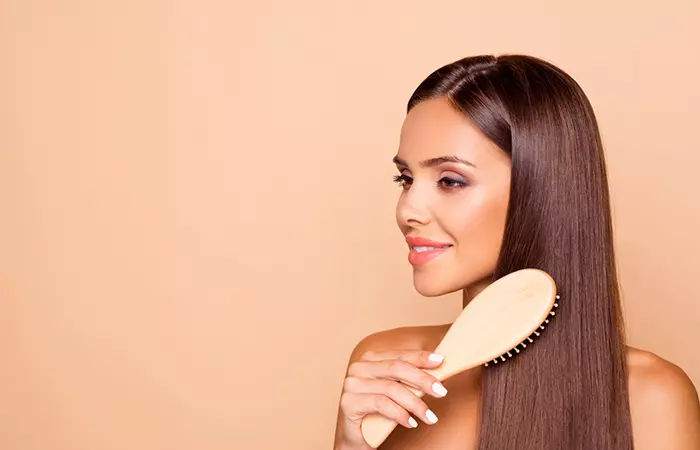
Hair conditioners contain cationic surfactantsi Substances widely used in personal care products that make hair easier to comb and repair damage, creating a smooth, shiny look. . These surfactants have positively charged hydrophilic headsi The water-loving part of a two-part soap molecule that draws in water and repels grease found in foaming products. that stick to the negatively charged hair strands, forming a protective coat to reduce static electricity and friction. Conditioners also improve shine and color (1). Applying a conditioner and leaving it in for a few minutes can be a beneficial step in your hair care routine. They make your hair feel softer, lustrous, and manageable. Depending on your hair type and hair styling preferences, you can choose different types of conditioners like leave-in conditioners or rinse-out (traditional) conditioners.
Check out the next section to understand the difference between regular and leave-in conditioners.
Key Takeaways
- Leave-in conditioners are meant to be left in your hair until the next wash, but should wash off regularly after a few minutes of application.
- Leaving conditioner in your hair for too long can cause hair fall, breakage, and scalp irritation.
- Deep conditioner should not be left on your hair for more than 30 minutes as it may over-condition your hair.
Regular Vs. Leave-In Conditioner
Regular conditioners have thick and creamy formulas enriched with heavy moisturizing and smoothing ingredients, like oils and butters, for deep conditioning. They can be applied to wet hair immediately after shampooing, left on for a few minutes, and then rinsed off. They are great for detangling and making your hair manageable.
Leave-in conditioners have lightweight, non-clogging formulas with glycerin, panthenol, and other light hydrating ingredients. They are applied to washed and towel-dried hair and not rinsed off to nourish and protect the hair from frizziness and dullness.
Although conditioners are great hair care essentials, simply using them will not automatically result in great hair. So you should remember to follow some hair tips and establish a hair routine that works best for you to maintain healthy, gorgeous locks! But how to use a conditioner correctly for the best results? Read below.
How To Use A Conditioner
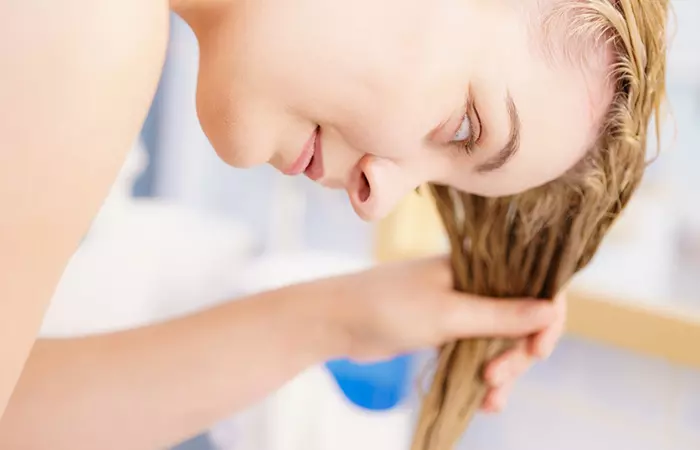
To use a traditional conditioner:
- Wring out the excess water from your hair after shampooing.
- Take a dime-sized amount of conditioner. Adjust the quantity as per the hair length.
- Rub it between your palms and apply through the mid-shafts to the hair ends.
- Leave it on for at least five minutes. The longer you wait, the better.
- Rinse it off with room temperature water.
Additionally, here are some conditioning tips for healthy hair:
- Always apply the conditioner to damp hair.
- Apply the conditioner from mid-shaft to the end. Avoid the scalp and roots.
- Wash your hair thoroughly to avoid product buildup.
- If you have natural hair, you may co-wash your hair between washes to keep your locks fresh and hydrated.
- You can use water-based leave-in conditioners to keep your hair soft and manageable between washes.
- Use a deep conditioning mask at least once a week.
 Quick Tip
Quick TipUsing conditioner properly can make a big difference in the health and appearance of your hair. How often you use conditioners depends on your hair type, your daily activities, and even your immediate environment. Understanding these factors can help you adjust your routine for the best results.
Integrating Conditioner Into Your Hair Care Routine
If you have dry or curly hair, conditioning every time you wash your hair can help keep it moisturized and soft. On the other hand, those with oily or fine hair must limit conditioning to just a few times a week to avoid weighing their hair down.
Here are similar tips to help you integrate conditioner into your routine:
1. Adapt To Seasonal Changes
Hair can become drier in winter, so you may need to condition more often. In humid climates, you might use a lighter conditioner or condition less frequently.
2. Tailor To Your Lifestyle
If you swim or spend a lot of time outdoors, conditioning regularly can protect your hair from damage caused by chlorine or sun exposure.
3. Focus On Your Hair’s Needs
If your hair feels brittle or frizzy, deep conditioning once a week can restore its shine and strength.
4. Apply Conditioner The Right Way
Focus on the ends of your hair, where dryness and damage are most likely to occur, instead of applying it directly to the roots.
Leaving the conditioner in your hair for long ensures better hydration. Does that mean you leave the conditioner in your hair without causing any hair damage? Let’s find out.
What Happens When You Leave Conditioner In Your Hair Overnight?
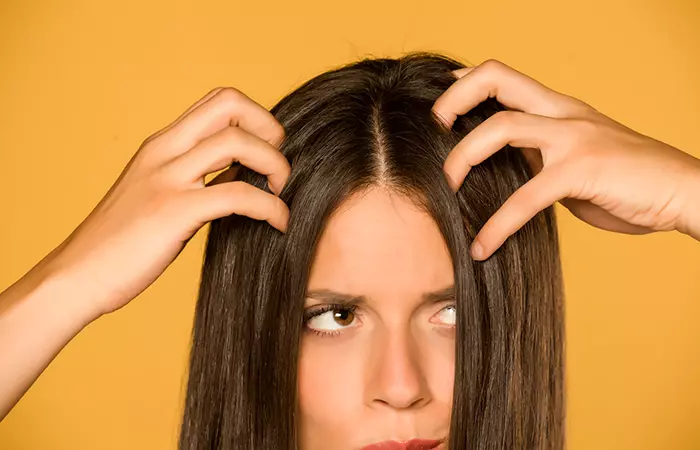
How long can you leave the conditioner in your hair? Leave-in conditioners should be left on the hair for longer or overnight to get the product’s maximum benefits. When you leave it overnight, the conditioner hydrates and nourishes your hair shafts to make it smoother and softer.
However, you should wash off traditional rinse-out conditioners after a few minutes. Leaving it on for a few extra minutes once in a while may not harm your hair. However, if you do it regularly, it may:
- Cause product buildup and clog the hair follicles, which will cause the hair to miniaturize and eventually fall out due to a lack of oxygen and nutrients. A study points out that excessive usage of hair products can cause physical damage to the hair (2). Attract dirt and dust and damage your hair eventually. According to a study, it was found that harmful particles from dust, smoke, and chemicals settle on the scalp, leading to hair damage. Air conditioning also adds to the problem by releasing chemicals that stick to the scalp (3).
- Weigh your hair down and make it appear flat and limp.
- Damage the hair structure and cause breakage (if you are using a protein conditioner).
- Make the scalp itchy and irritated.
However, it depends on your hair type. Courtney, a blogger shares her experience of keeping conditioner on her hair. She writes, “I’m not sure if this is okay to do. I should probably look up if it is okay to leave conditioning products in your hair that don’t specifically say “leave-in conditioner,” but you know what, I’ve been doing this all my life. Not with this specific hair goo mixture, but I’ve always left conditioners in my hair for a day or two (i).”
Nonetheless, sleeping overnight with regular conditioners may cause hygral fatigue (swelling of hair shafts due to excess moisture). Over-conditioning your hair may:
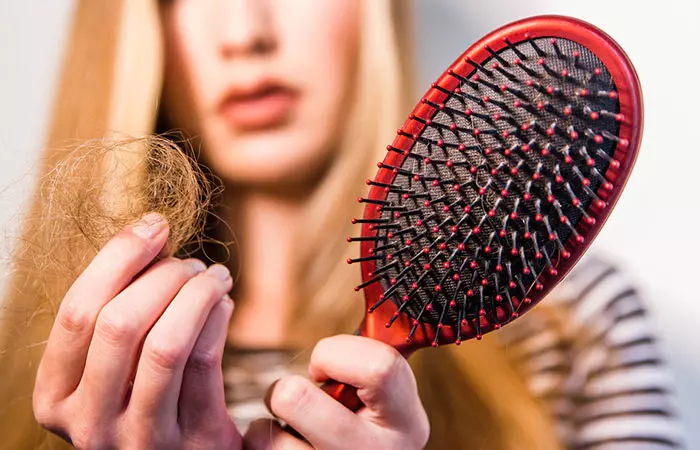
- Damage the hair cuticles
- Expose the cortex (inner layer)
- Cause tangling
- Cause hair breakage
- Make the hair dull and lifeless
If you think your hair is over-conditioned, reduce the frequency of hair washing for a few weeks.
Take a break from using hair products like conditioners and start using them once your hair recovers. Do not ignore the directions on the conditioner package. Avoid conditioners with silicones and parabensi A combination of preservatives used in cosmetics to stop bacteria or mold growth and protect products from decay. and stick to natural products. Krysta Biancone, a hairstylist, adds, “It’s also important to use the right kind of conditioner for your hair type.”
She explains, “If you’re using a heavy conditioner on fine hair, there’s a good chance that you’re leaving too much product behind in your strands. This can leave your hair feeling weighed down and looking lifeless. On the other hand, if you’re using a light conditioner on thick, curly hair, then there’s a chance that not enough product is being left behind to protect and moisturize your locks.” So, here are a few tips to help you out.
Leave-In Conditioning Tips For Different Hair Types
Straight Hair
- Use a light, spray-based leave-in conditioner to avoid buildup.
- Apply a small amount to mid-lengths and ends, avoiding the scalp.
- Choose formulas with heat protection if using hot tools.
Wavy Hair
- Opt for a lightweight, curl-enhancing leave-in conditioner to define waves.
- Scrunch hair after applying to encourage natural texture.
- Use aloe vera or glycerin-based leave-ins for hydration without greasiness.
Curly Hair
- Use a cream-based leave-in conditioner to prevent frizz and enhance curls.
- Apply in sections for even coverage.
- Follow with a curl cream or gel for added definition.
Coily/Kinky Hair
- Choose rich, butter-based leave-ins like shea butter or castor oil-infused formulas.
- Apply generously, focusing on the ends to prevent dryness.
- Layer with an oil or cream to seal in moisture.
Color-Treated Hair
- Use color-safe, sulfate-free leave-in conditioners to prevent fading.
- Look for UV protection to shield hair from sun damage.
- Opt for protein-enriched formulas to strengthen treated hair.
Fine Hair
- Choose water-based leave-ins to avoid weighing hair down.
- Apply sparingly, focusing only on the ends.
- Try a volumizing leave-in conditioner for extra lift.
Thick/Coarse Hair
- Use a deeply nourishing leave-in conditioner with hydrating oils.
- Apply a generous amount and detangle with a wide-tooth comb.
- Let it sit for a few minutes before styling for maximum absorption.
Also, if you want to sleep in your conditioner, use products that are formulated for overnight use.
 Did You Know?
Did You Know?Can You Use A Deep Conditioning Treatment Overnight?
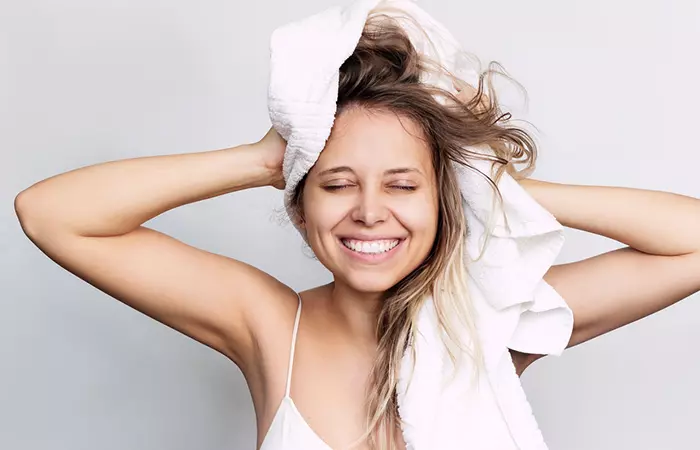
No. Using deep conditioners overnight can over-condition your hair. Deep conditioners also act as a hair treatment and are specially formulated for extra hydration and should be left on your hair for not more than 30 minutes.
However, you will find overnight conditioners and moisture therapies on the market. These products have a nourishing formula to maintain the right moisture balance. Overnight conditioners are not overwhelming for the hair.
Infographic: Tips To Keep In Mind Before Using A Conditioner
A conditioner keeps your hair hydrated, smooth, and shiny. However, leaving a conditioner on overnight can lead to scalp itchiness and product buildup. Hence, we have compiled a list of tips you can keep in mind before you use a conditioner to ensure proper hair hydration and health. Check out the infographic below to know more. Illustration: StyleCraze Design Team
While conditioning is a crucial part of a hair wash routine, over-conditioning can damage the hair structure and do more harm than good. Therefore, it is better not to leave the conditioner in your hair longer than the suggested time on the product package. In addition, regular conditioners have a different formula than overnight and leave-in conditioning products available on the market. Leaving them for a few extra minutes once in a while may not damage the hair, but you must stop if you do this regularly. This habit may ultimately affect your overall hair health, weigh your hair down, and make it appear limp and flat.
Frequently Asked Questions
Can I put conditioner in my hair and let it sit?
Yes. You can apply a regular conditioner and let it sit for 15-30 minutes. Then wash it off with cold water.
Does leave-in conditioner cause hair loss?
No. Leave-in conditioner does not cause hair loss. It improves hair health and keeps it soft and manageable. It is applied after washing and conditioning the hair for heat protection and styling.
What happens if conditioner is applied to the scalp?
Applying conditioner directly on the scalp can cause problems like excessive oiliness, greasiness, blocked hair follicles, and even hair loss in some cases. It’s important to keep in mind that conditioner is meant to work on the hair, not the scalp.
What is the difference between leave-in conditioner and regular conditioner, and can you leave both in your hair?
The leave-in conditioner is designed to rehydrate the hair between shampoo sessions, protect it from damage, add shine, and improve manageability. On the other hand, regular conditioner is used to rehydrate and strengthen the hair after shampooing. Although both products are meant to stay in the hair after shampooing, they have different formulations and purposes, and it is not recommended to leave the regular conditioner in the hair without rinsing.
Should you apply conditioner to wet or dry hair if you plan to leave it in?
To use a leave-in conditioner, first, wash and towel-dry your hair. Apply the leave-in conditioner to your damp hair before you style it. Do not apply it to dry hair as it can cause uneven distribution and product buildup.
Discover the secrets of a professional guide to a leave-in conditioner! Watch this informative video to learn expert tips and techniques for achieving luscious, healthy hair with the perfect leave-in product.
Personal Experience: Source
StyleCraze's articles are interwoven with authentic personal narratives that provide depth and resonance to our content. Below are the sources of the personal accounts referenced in this article.
i. My Hair Goo Twists!https://ourstretchmarks.wordpress.com/category/hair-hair-hair/
References
Articles on StyleCraze are backed by verified information from peer-reviewed and academic research papers, reputed organizations, research institutions, and medical associations to ensure accuracy and relevance. Read our editorial policy to learn more.
- Shampoo and Conditioners: What a Dermatologist Should Know?
https://pmc.ncbi.nlm.nih.gov/articles/PMC4458934/ - Hair Loss: Common Causes and Treatment
https://pubmed.ncbi.nlm.nih.gov/28925637/ - Understanding Hair Loss due to Air Pollution and the Approach to Management
https://www.researchgate.net/publication/295859437_Understanding_Hair_Loss_due_to_Air_Pollution_and_the_Approach_to_Management
Read full bio of Monica Dickenson
- Krysta Biancone is a hair stylist with over 13 years of experience in blonde highlights, hair extensions, and blonde coloring. She aims to make every client feel their absolute best.
 Krysta Biancone is a hair stylist with over 13 years of experience in blonde highlights, hair extensions, and blonde coloring. She aims to make every client feel their absolute best.
Krysta Biancone is a hair stylist with over 13 years of experience in blonde highlights, hair extensions, and blonde coloring. She aims to make every client feel their absolute best.
Read full bio of Ramona Sinha
Read full bio of Eshna Das
Read full bio of Monomita Chakraborty






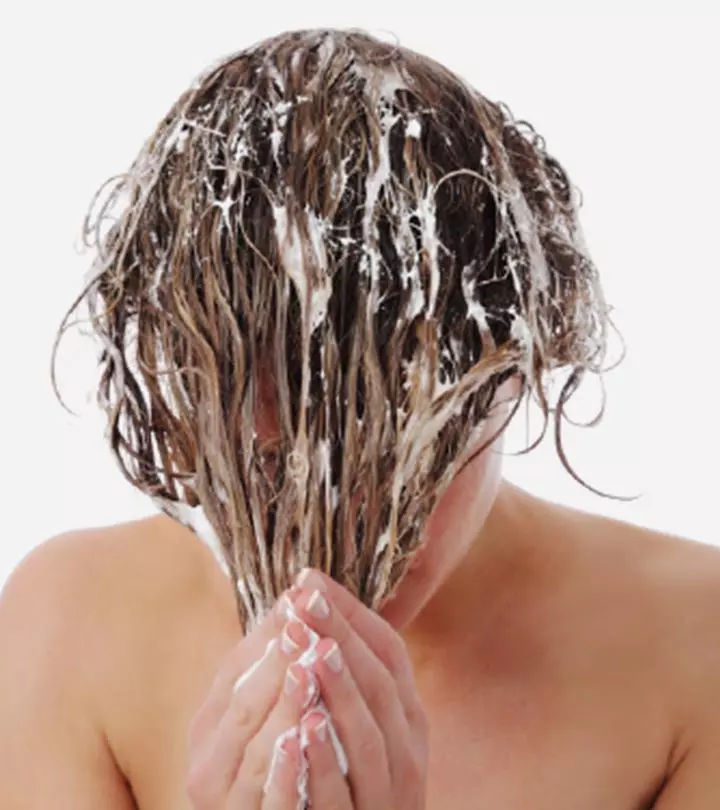

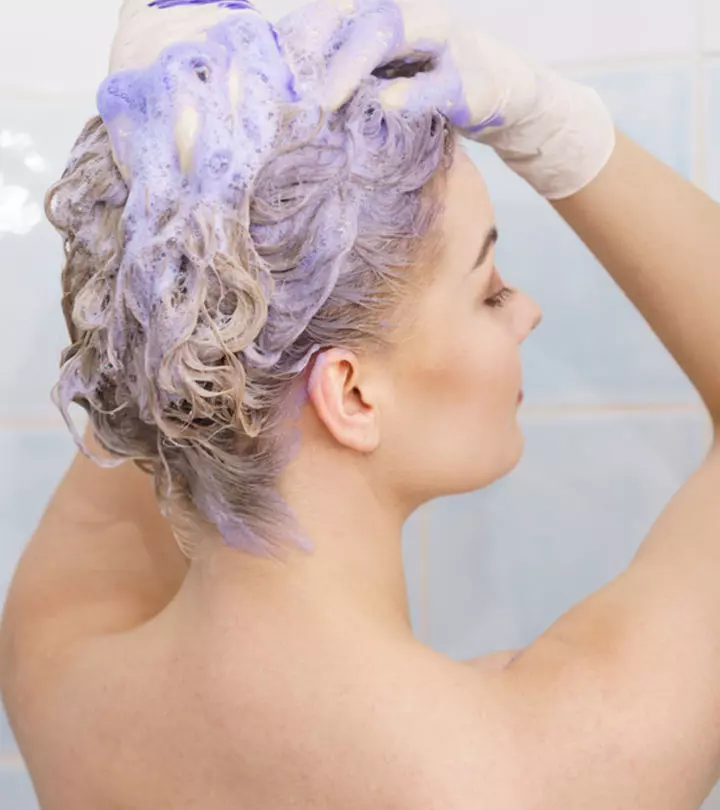

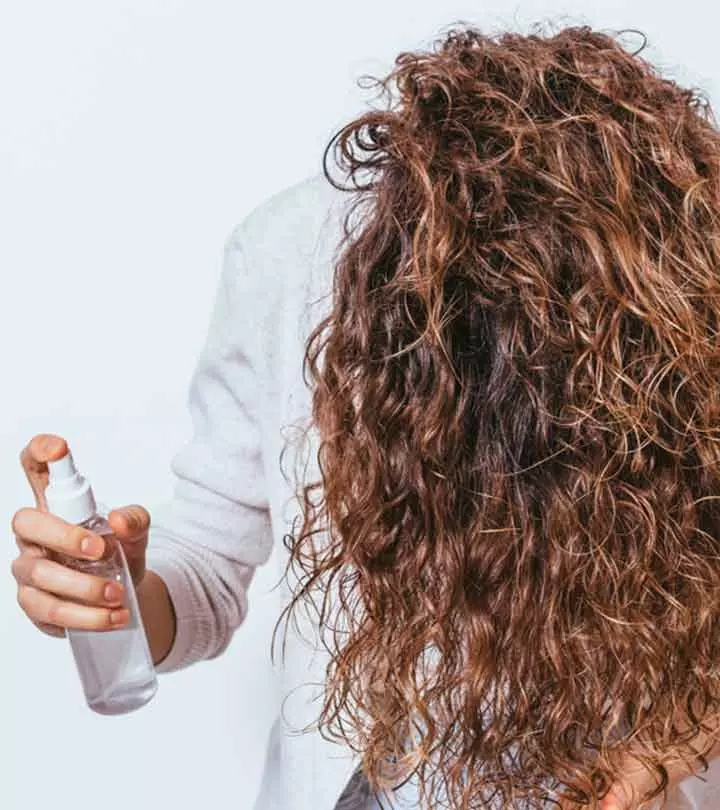

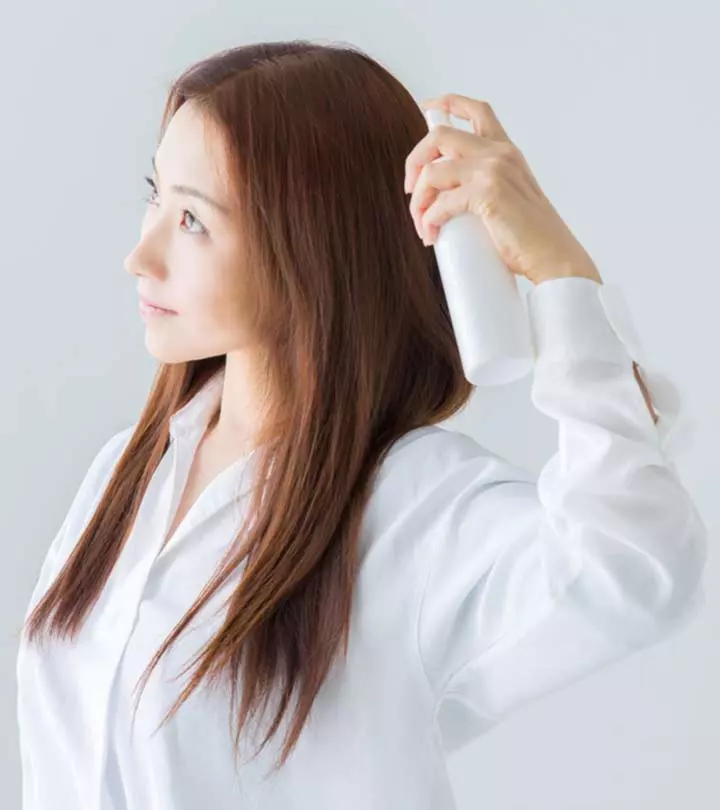
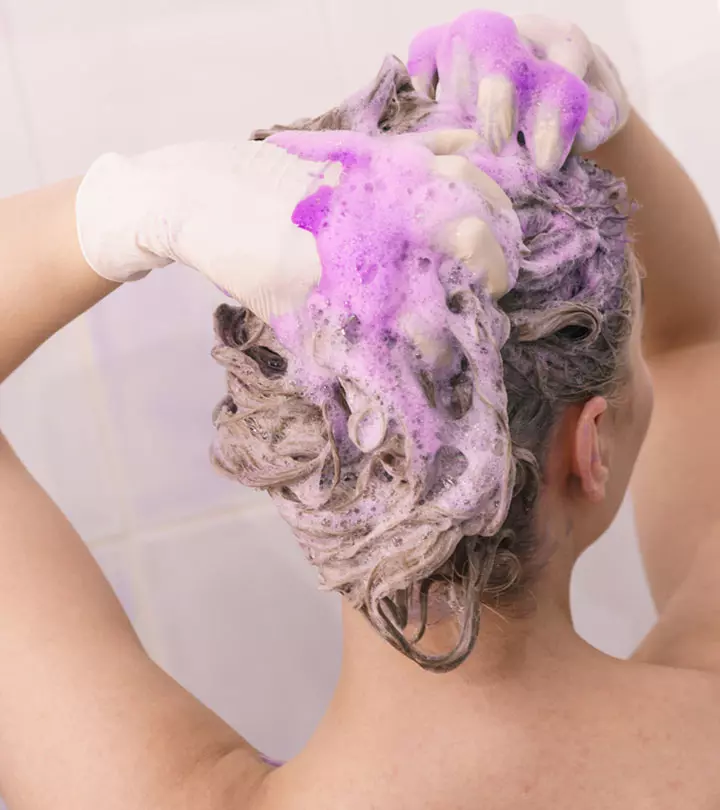
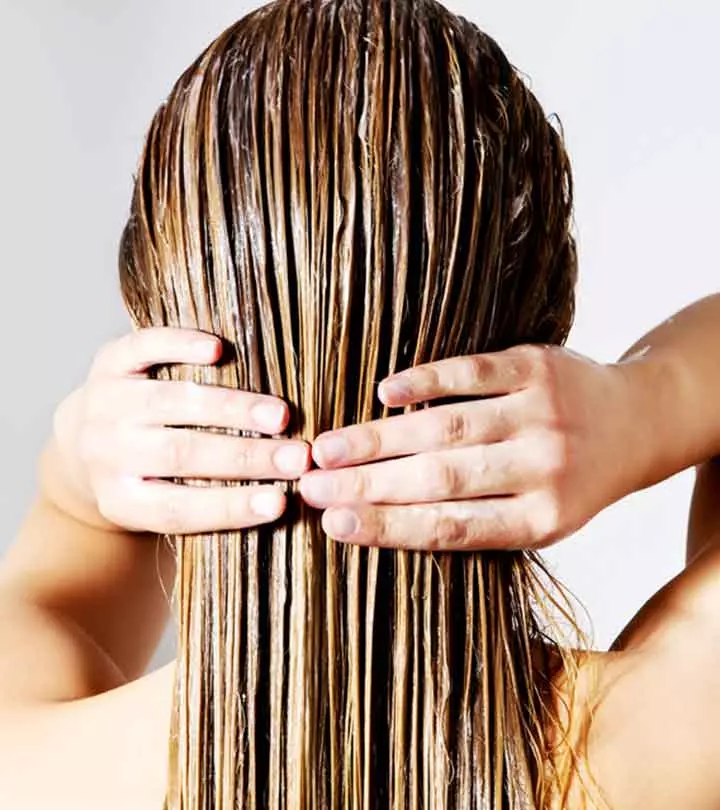

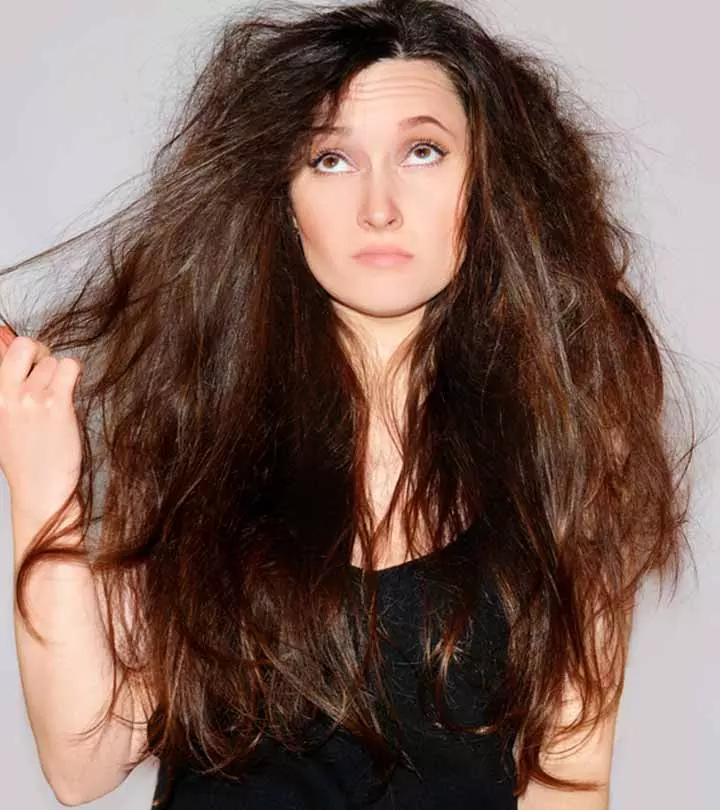


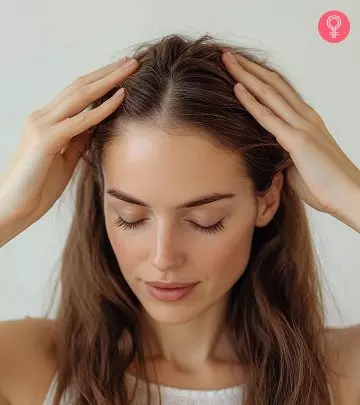
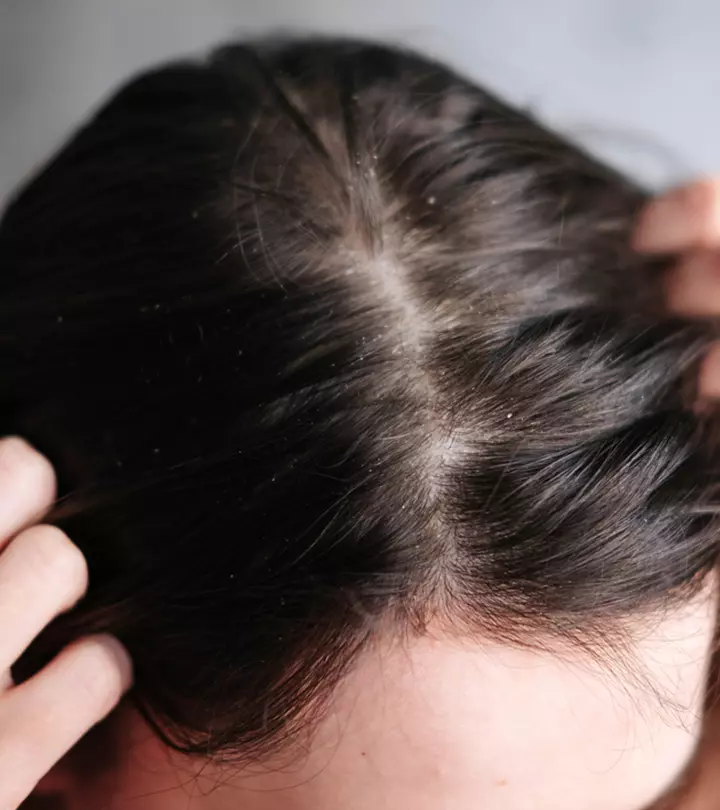

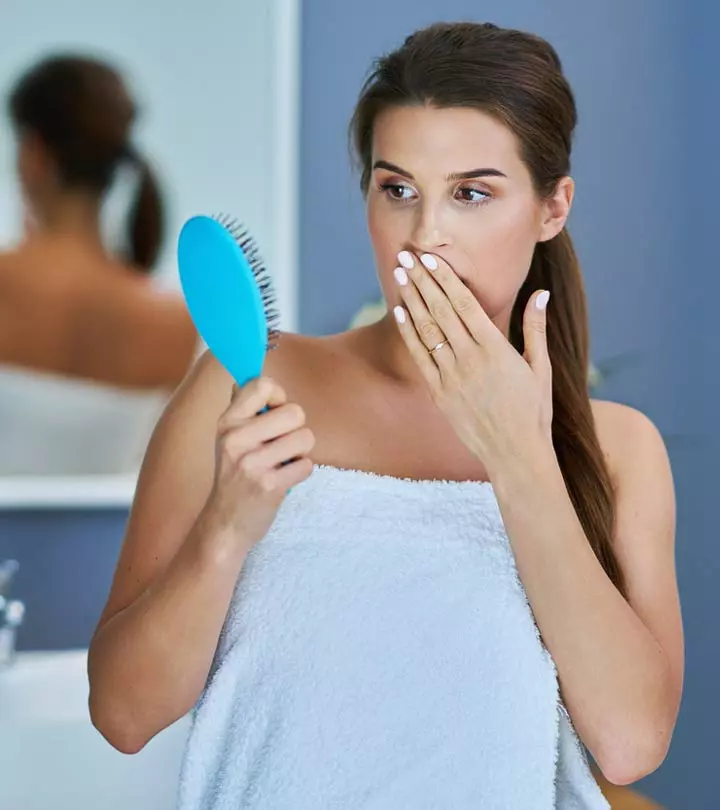
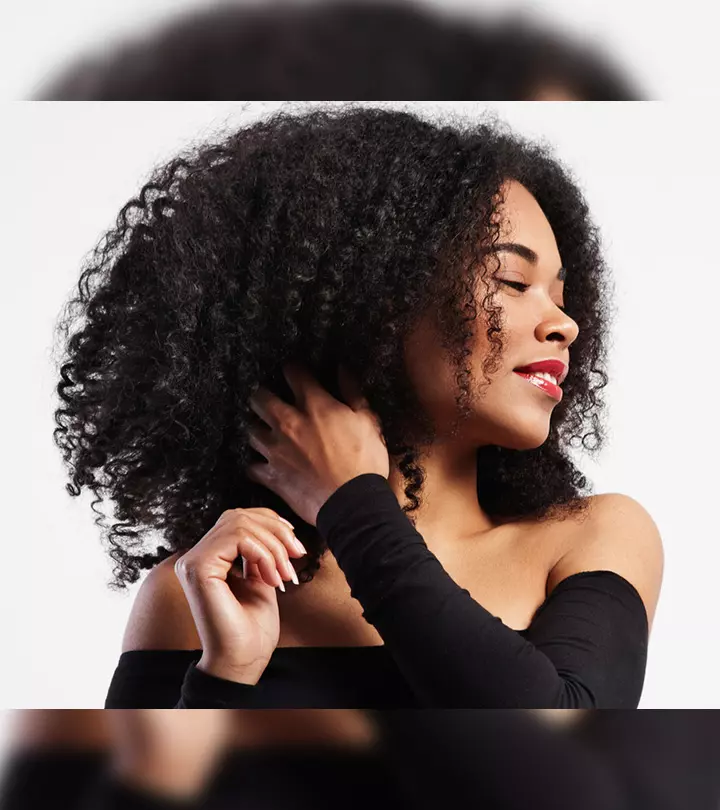
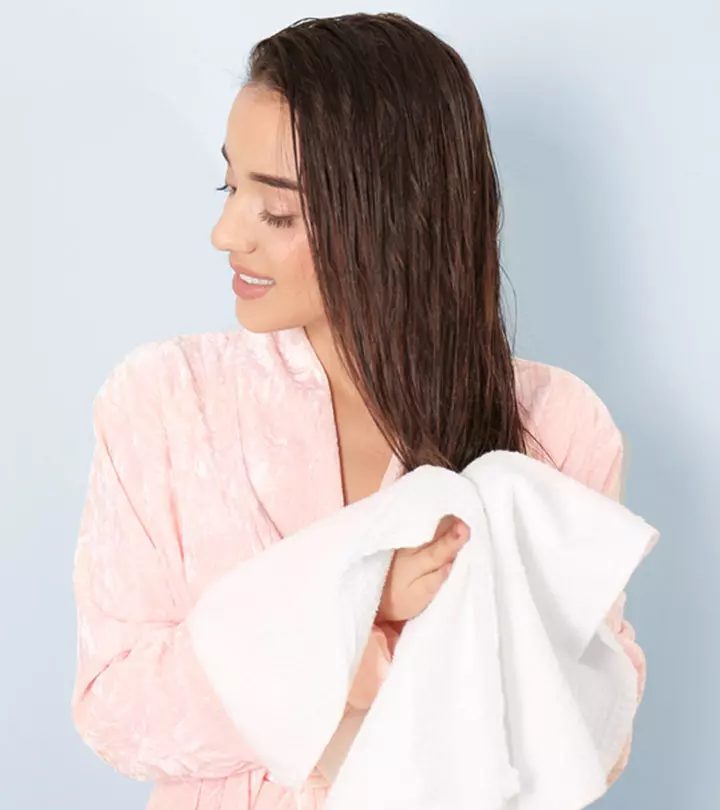
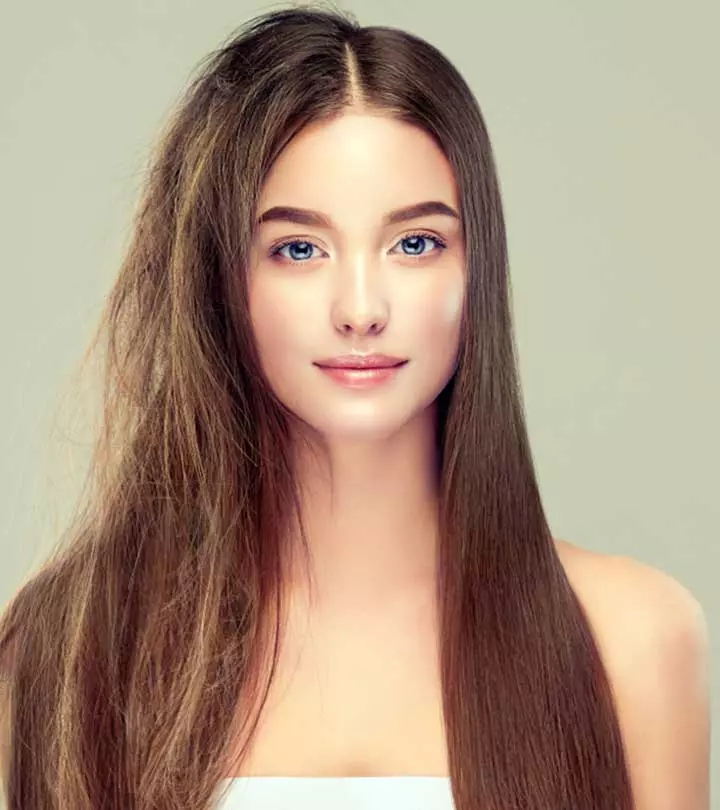
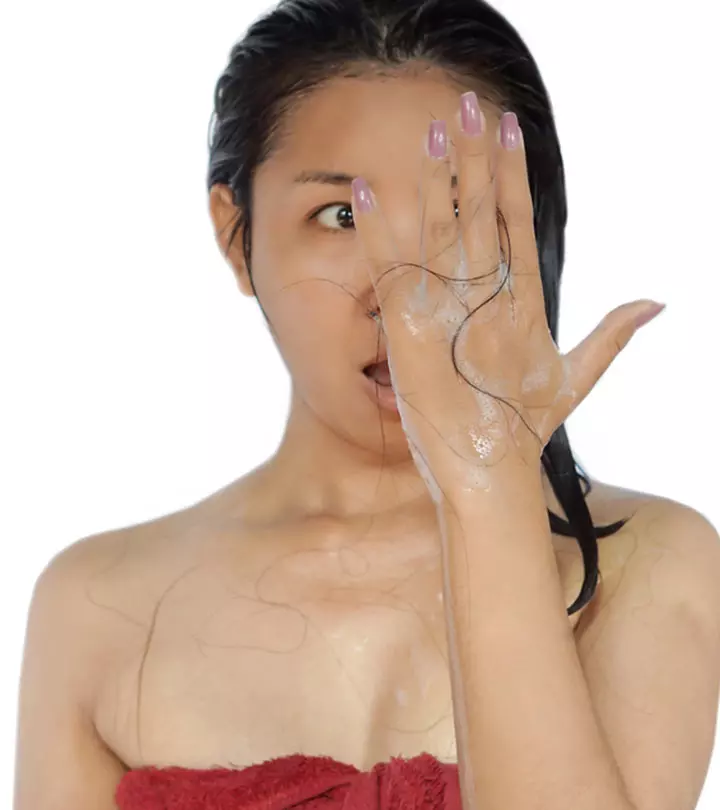
Community Experiences
Join the conversation and become a part of our empowering community! Share your stories, experiences, and insights to connect with other beauty, lifestyle, and health enthusiasts.